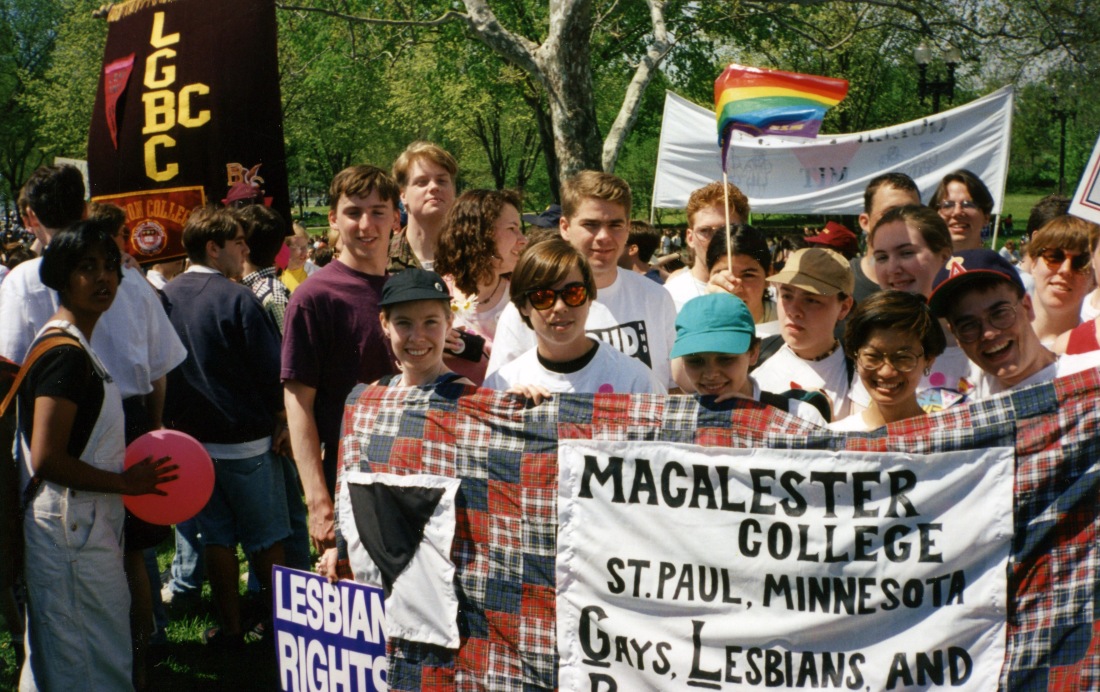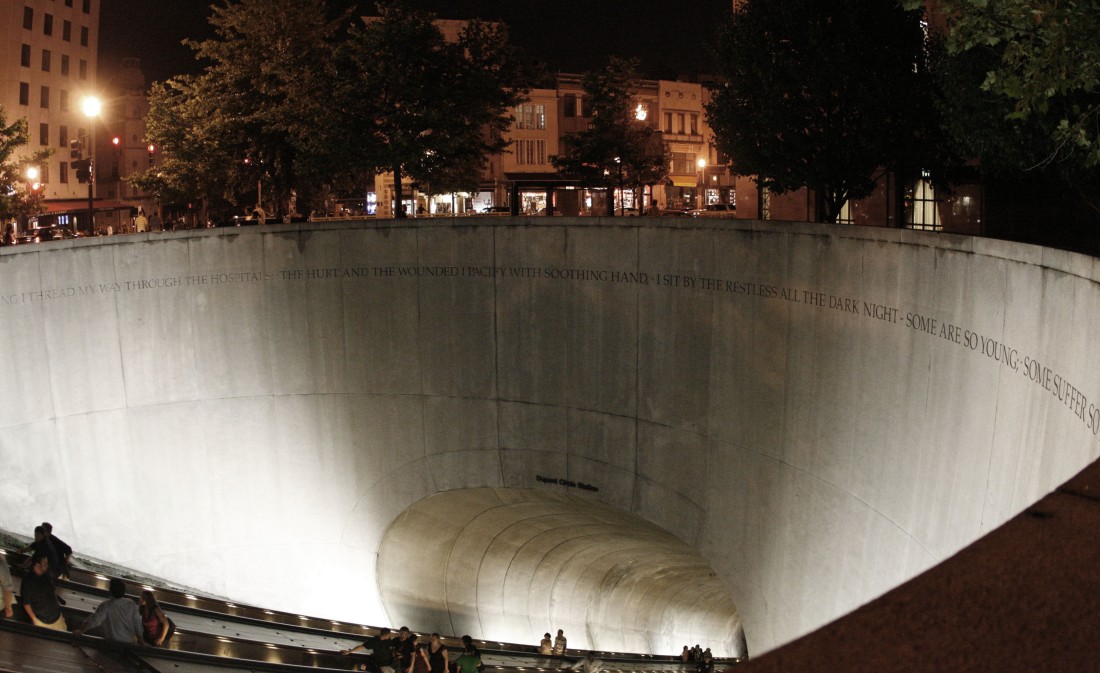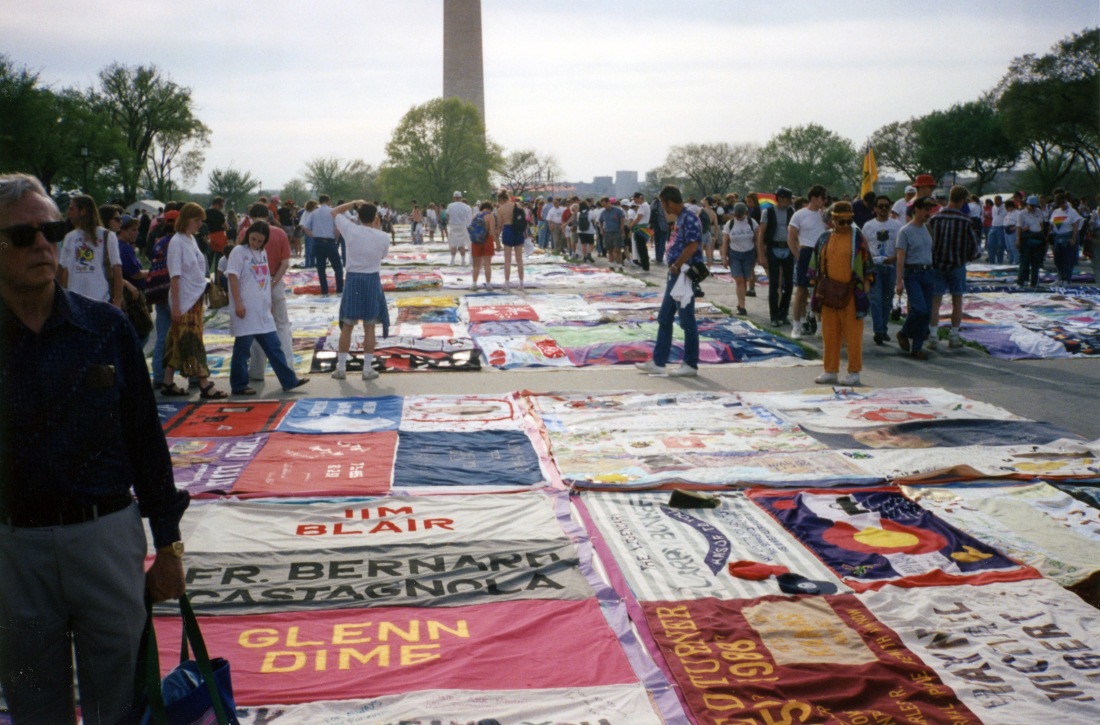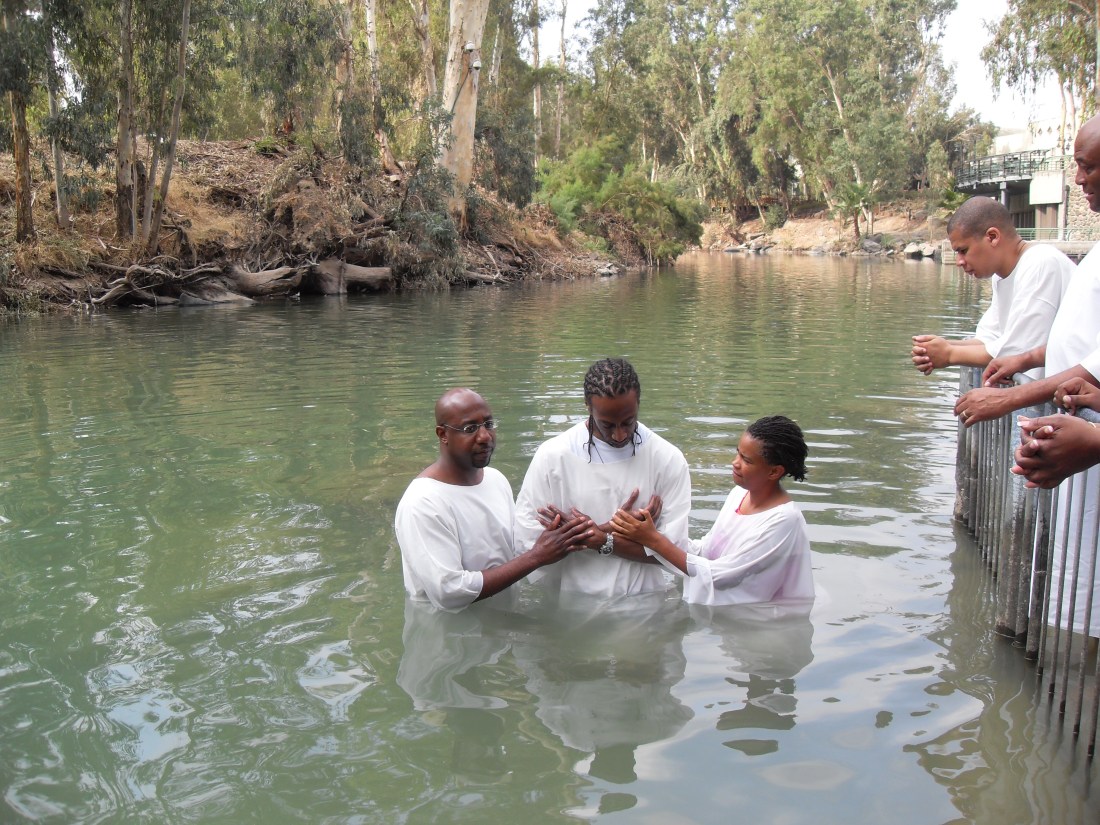Texts: Isaiah 9:1-4 + Psalm 27:1,4-9 + 1 Cor. 1:10-18 + Matt. 4:12-23
How many of you were at the Women’s March downtown yesterday? I didn’t go, though I wondered all week if I would. I’ve been to a few marches in my life, but only one that could really compare to the quarter million people who turned out yesterday morning to pack the streets of Chicago in a demonstration of solidarity and cry for justice. It was the 1993 March on Washington for Lesbian, Gay and Bi Equal Rights and Liberation (yeah, we didn’t get the T added to the official marches of the movement until the 2009 march).
In 1993 I was 19 years old and a college sophomore. I’d only started coming out six months earlier, and my therapist at the student counseling center had recommended that I try to attend the march if possible. A group of students from my alma mater, Macalester College, chartered a tour bus and about 50 of us rode all night from Minneapolis to Washington, D.C. to attend the march. After getting dropped off at Union Station late Saturday morning we took the subway to Dupont Circle, which is historically the heart of the gay community in D.C.

I will never for the rest of my life forget what it felt like as we got off the train in Dupont Circle. That subway station is deep underground and to get to street level you either walk up a huge number of stairs or you take one of the longest escalators I’ve ever seen (I took the escalator). The opening onto the street is circular, with a short wall surrounding it. As we rose slowly from beneath the earth we could see that circle of bright sunlight above us getting larger and larger, and we could hear the voices of thousands of people chanting and cheering something, something we couldn’t quite make out until we were almost out of the ground. Then the noise of the crowd crystallized into the voices of individual people who I could now see were circling the subway entrance shouting down to us, “Welcome home! Welcome home!” And when we finally poured out into Dupont Circle we were swept up into a sea of every kind of queer person you can imagine: young college activists and emaciated men walking with canes; leather daddies and radical fairies; women decked in plaid flannel and others baring it all, as if they’d just arrived from the Michigan Womyn’s Music Festival. Androgynous and gender-queer people skipping through the streets as if it was the safest thing in the world to do because, on that day, in that place, for a short while, it was home and we were safe, and no bully or basher could stop us.

The next day we marched on the Capital to demand our rights, to show our strength, to be counted. We marched past the NAMES Project AIDS Memorial Quilt on the national mall, laid out in its entirety for one of the last times before it got too big to do so. We marched with friends, we marched with strangers who felt like friends, we marched for hours and never got tired. We stood under a clear blue sky on a warm day like the earth was made for us and nothing could take it away from us. We marched like people who knew the truth and couldn’t be lied to. We marched like our lives depended on it, because they did.

When we left we were filled with power and vision and hope, and we would need all three for the years ahead as we fought for equal treatment under the law in employment, in military service, in healthcare access, in parenting, in marriage. Even now as the struggle shifts and changes, I can return to that memory and feel my body and my voice getting stronger, filling up the way water rises from the earth to fill a well.
I suspect that is what those of you who attended yesterday’s Women’s March feel, filled with power and vision and hope. We are going to need all three in the years ahead.
It occurs to me that Jesus was no stranger to the notion of a public march. In fact, we commemorate his famous entry into Jerusalem every year on Palm Sunday, remembering how people flooded the streets to watch a poor, itinerant teacher and prophet enter the city on the back of a donkey as a counter-demonstration to the one the Emperor would put on, riding into town on the back of a war horse. Jesus, drawing on the long line of prophets from which he was descended, wasn’t above using street theater and public sign acts to reveal something about the nature of God. However, unlike the organizers of yesterday’s march, Jesus could not send out a call to assemble via social media or even the mainstream press. He had to build his coalition one person at a time, beginning at Capernaum by the Sea of Galilee.
The story we hear this morning begins with a quick note to let you know that Jesus of Nazareth, born in Bethlehem, is now in neither place. Instead, like so many young adults who leave home to start their life in a new city, Jesus begins his work in Capernaum by the Sea of Galilee. He makes an intentional choice to begin his organizing work among people who fished for a living. Political theologians have pointed out that the fishing industry was going through rapid transformations under the Roman Empire. What had been a subsistence economy, people fishing to feed their families, was being turned into an export economy, people fishing to sell their catch to feed those who had money and could afford to buy. The system worked well for Rome but not for those who fished, whose work could not keep up with the demand. Fish were depleted from the lake faster than the eco-system could replenish them, making it harder and harder for workers to earn their wage, keeping laborers out on the lakes longer and longer hours with less and less to show for it. You can imagine the kind of anger, frustration, and despair these working people felt as they clustered on the lakeshore each morning cleaning and repairing their nets. That is where Jesus began his work.
“Follow me, and I will make you fish for human beings,” was his recruiting pitch. I’m sure it was more than that. I imagine he walked the lakeshore getting to know the laborers by name, finding out who was sick, who’d just had a child, who was drunk and had missed a night of work again. I feel positive he listened to them, got to know their stories, helped them see their common cause with one another. I suspect he’d even begun preaching, telling them about the “kingdom of heaven,” trying out the lines that would make their way into his Sermon on the Mount. By the time he said “follow me” I think he must have followed them quite closely, gotten to know their struggles and their fears. Why else would Peter and Andrew, James and John, and all the others to follow have dropped their nets and followed him?
It also occurs to me that Jesus wasn’t afraid to ask those who became his disciples to make huge changes in their lives. He leads with “Repent, for the kingdom of heaven has come near.” His call to repentance isn’t an injunction to feel bad about themselves, it’s a direction to turn their lives around. He says to them “repent,” because they have gotten so helplessly tangled in the Empire’s net, accepting the lies they’d been told about being a conquered people, an occupied people, an always-working-never-resting people, a people with no future. Jesus says, “the kingdom of heaven has come near,” to startle them, to rouse them, to remind them of who they are and who they have always been. A chosen people, God’s own beloved, created with dignity and worth, people with a future. Jesus is recruiting for his march, and you can already begin to imagine the signs people will be carrying, the chants they’ll be crying out, the rowdy street theater they’ll conduct to wake the nation. But to build that movement, the never-ending march toward heaven of which we are a part, Jesus first had to ask them to put something down, to leave something behind, to give something up, and to follow him.
This, my dear friends, is what I am here to do as well. I am here this morning to ask you to put something down, to leave something behind, to give something up and to follow Jesus, to join the march. And before I continue, let me remind you (and myself) that I am not asking this of you in the way that Jesus asked this of the workers on the shore, as though I am Jesus and you are the workers. I am asking these things of you because we are the body of Christ in the world, we are the hands and feet and voice and cry of Jesus by the lake and in the streets. That is our baptismal calling and vocation. So what I ask of you, I ask on behalf of us all. You might say we are asking this of each other, and you have commissioned me to periodically remind each of you of that fact (and by periodically, I mean every seven days, every time we pass by this font and dine at this table, we are reminded).
Here’s what we are asking of each other:
> Repent. Repent, stop and see which way your life is facing, and where you need turn around. The life of faith is aimed at societal transformation, the reign of God, the earth renewed — but it begins with you, with each one of us. A transformed world begins with transformed people. So stop and see which way your life is facing, which direction your energy is flowing, who and what gets all your time and love and money, and who and what does not.
> Remember. The kingdom of heaven, which is another way of saying God’s beloved community, the anti-Empire, the system under which all things are healed and whole and well has come near. We are no longer waiting. We are resurrection people. The moment of our liberation is at hand. The march has already begun.
> Leave your nets. Let your newfound resolve result in a new life. Decide what you must leave behind, and step away from it. Move toward the movement. Do not be a bystander to God’s work in the world. Join us now. Don’t wait another day!
Throughout the long history of the church, this has been one of the meanings of baptism — a visible sign of repentance and renewal, a public commitment to be part of the movement, a sign of our citizenship in this alternate, in-breaking “kingdom of heaven” which can no longer be called a kingdom because it abhors patriarchy, which cannot rightly even be called a commonwealth because it is better than any form of government we have ever seen. We call it a communion, because it a sacrament, a living sign of an eternal truth, that God created the world and called it good, that we are human and whole and free, that justice is our birthright, and everyplace is our home.

That, church, is our mission and the stakes are high. So I am standing here today to tell you, to prepare you in advance for the fact that I am going to be making big asks of you in the coming year. No, let me get that right — we are going to be making big asks of each other in the coming year. We are going to ask you for your time. We are going to ask you for your money. We are going to ask you to open your address books and share your relationships. More than that, we are going to ask you to be brave, and patient, and loving, and generous. We are going to ask you to be peacemakers in a violent world. We are going to ask you to leave your nets and make your home in each other.
We will not be able to gather with a quarter million people every Saturday, but we can gather here with each other, with those we will catch in our nets, with those we will walk beside and accompany, with those we will listen to and heal, with those we will invite to join our movement, with those who will be baptized at this font. We can join the march that began when God exited the earth, ascended into the streets of time, joined the joyful throng of humanity, put violence and death on notice, and welcomed us all back home into our lives.
For that, I would gladly leave everything behind.
Pastor, You had me saying, “Yes Pastor!” I kept it in, but going forward I will not!
I am still hearing: “So stop and see which way your life is facing, which direction your energy is flowing, who and what gets all your time and love and money, and who and what does not.”
LikeLike